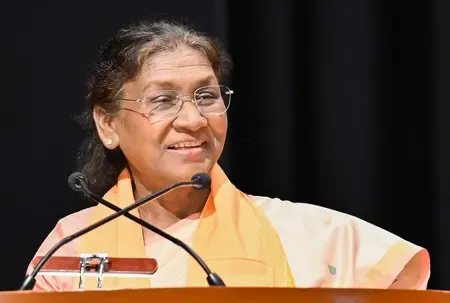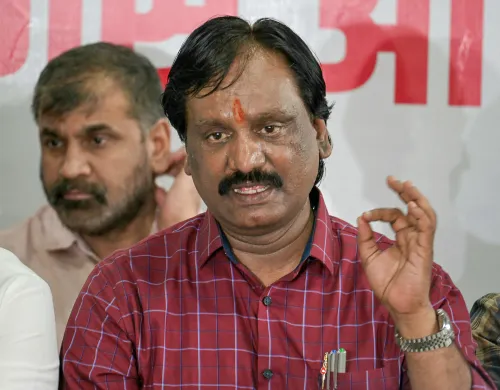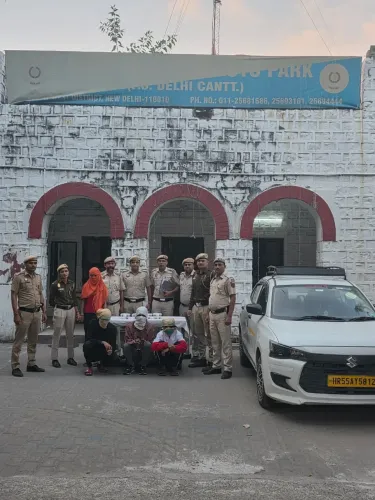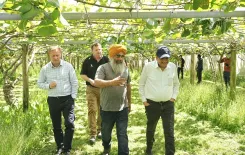How Did Chef Vikas Khanna Honor India’s Diversity at the Koovagam Festival?
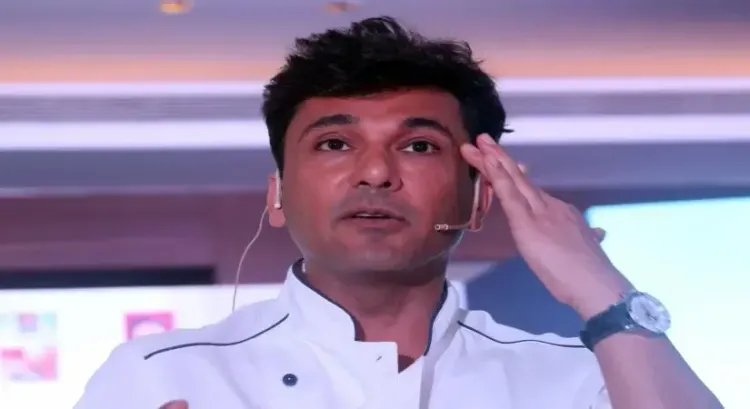
Synopsis
Key Takeaways
- Chef Vikas Khanna celebrates the Koovagam Festival with a tribute to the transgender community.
- The festival lasts for 18 days, showcasing India's cultural richness.
- Special offerings at Bungalow include vibrant rangoli and panchamritam inspired desserts.
- The festival honors the story of Aravan from the Mahabharata.
- Events like this promote inclusivity and diversity in society.
Mumbai, May 7 (NationPress) Celebrity chef Vikas Khanna paid tribute to India’s rich cultural tapestry with a moving homage to the transgender community.
In a touching post, he announced that on May 8th, his restaurant Bungalow will celebrate the culmination of the 18-day Koovagam Festival—one of the globe’s most ancient and revered congregations of the transgender community, taking place annually in Koovagam, Tamil Nadu. Vikas shared that his restaurant will be transformed into a lively space filled with ritual and reverence for this momentous occasion.
The chef also shared a series of captivating photographs, captioning them, “On May 8th, Bungalow proudly honors the closing of the 18-day Koovagam Festival—one of the largest and most sacred events for the transgender community, celebrated annually in Koovagam, Tamil Nadu. Rooted in the epic Mahabharata, the festival pays tribute to Aravan, who was united in marriage to Lord Krishna in his divine form as Mohini before sacrificing himself—a profound tale of love, identity, and devotion.”
He further explained, “To celebrate this moment, we’ll decorate our venue with a vibrant rangoli of marigolds, roses, and vermillion, and serve specially crafted petit fours inspired by Panchamritam—a sacred mix of milk, curd, ghee, honey, and banana, traditionally shared as prasadam. In ritual, in color, in sweetness—we honor the spirit of Koovagam. PS- All these images are part of my book UTSAV, dedicated to India’s transgender community. Through my three visits to this festival, I have truly grasped the strength of India’s diversity.”
For those unfamiliar, the Koovagam Festival is a lively 18-day celebration held annually in Koovagam, Tamil Nadu, where transgender women—referred to as Aravanis—gather for a deeply spiritual and cultural event. The main festivities revolve around the Koothandavar Temple, where they symbolically wed the deity Aravan, a figure from the Mahabharata, as a powerful act of faith and identity.


